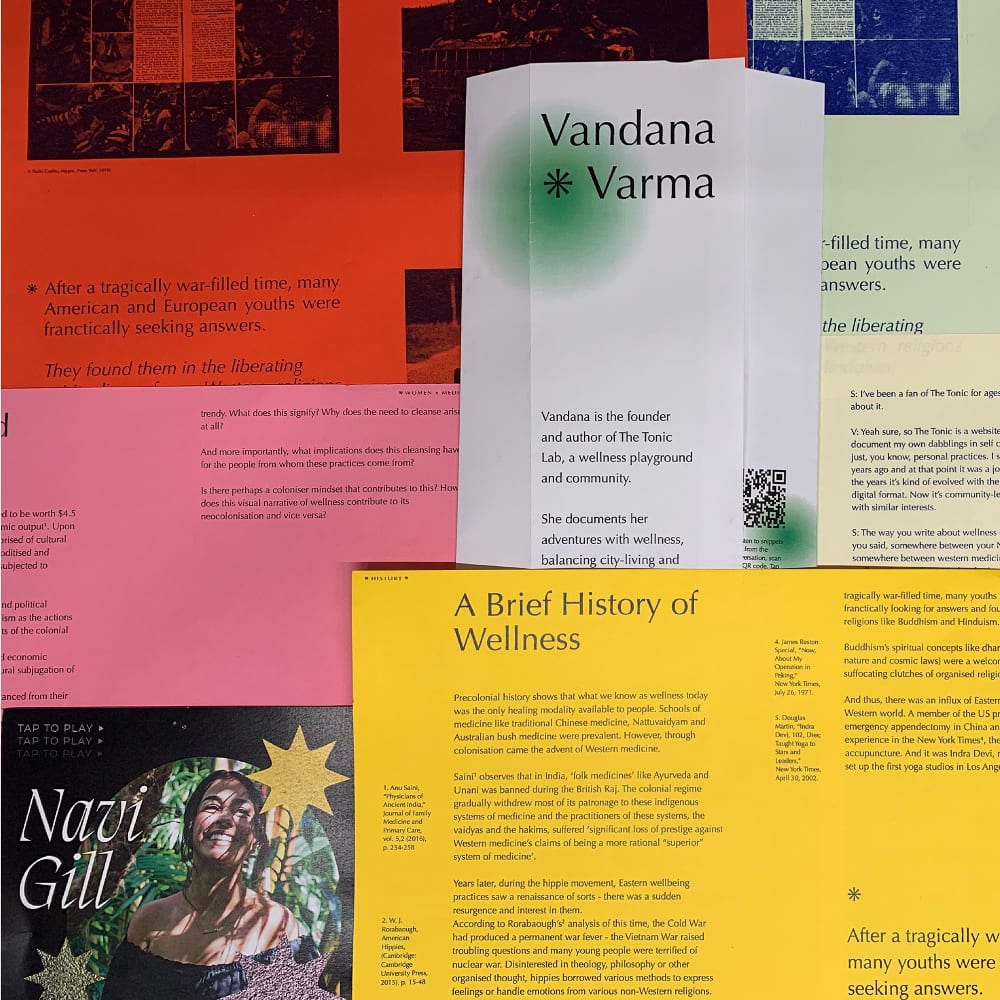
MA Graphic Communication Design, Camberwell College of Arts, UAL | Photograph: Camberwell College of Arts
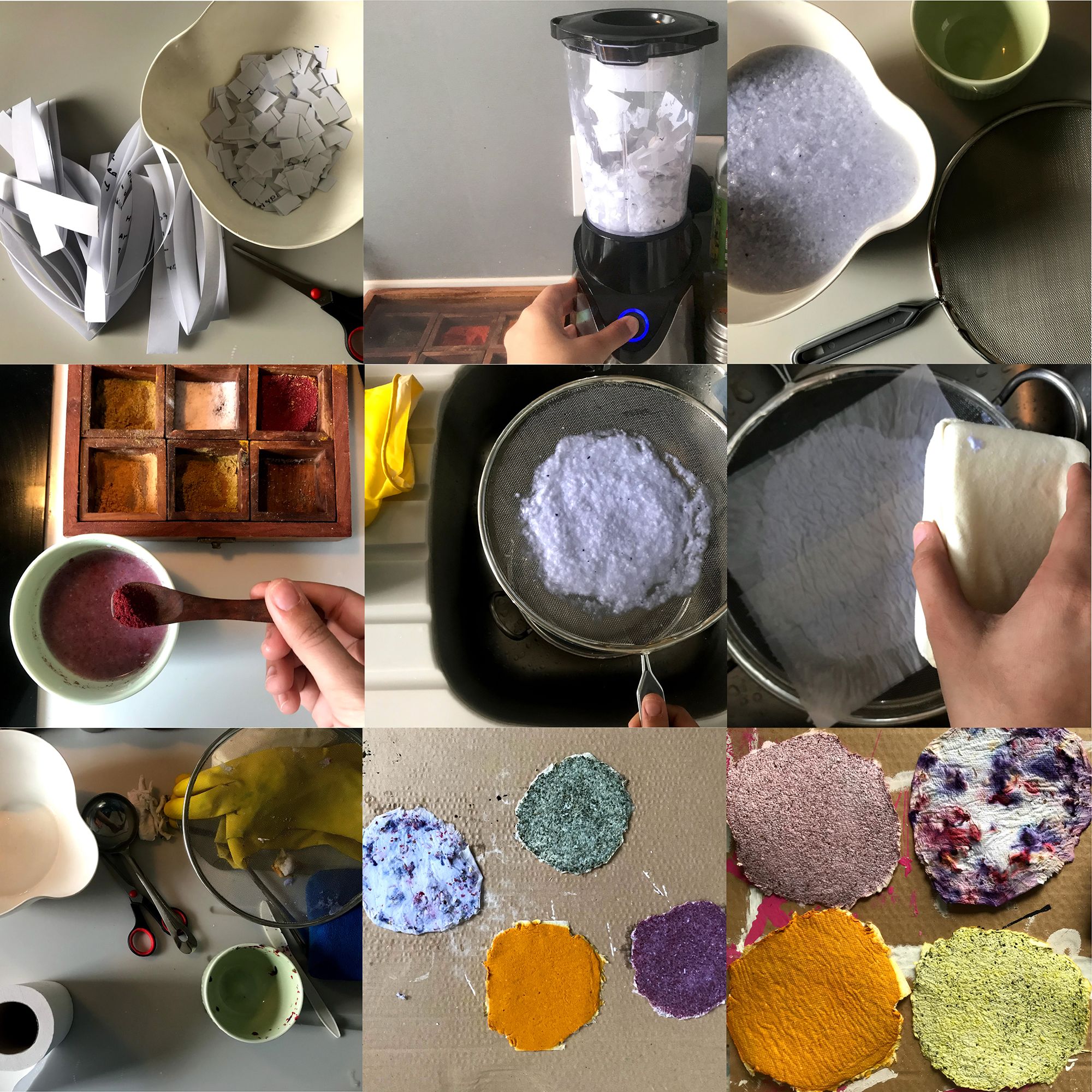

London based graphic designer Shaila Ankolekar graduated from MA Graphic Design Communication at Camberwell College of Arts this summer.
Her Graduate Showcase 2021 submission, titled Find Your Fix, focuses on neocolonialism within the wellness industry. We spoke with Shaila earlier this year to find out more about her final project and how she has approached it alongside concerns about sustainability and decolonisation.

My project investigates the rebranding and gentrification of wellness. The appropriation of indigenous healing modalities by the wellness industry has tremendous social and environmental impact on the people these practices borrow from.
I use wellness as a lens to encounter bigger socio-cultural issues like transgenerational trauma, the gender disparity in medicine and the deliberate elitism and otherness created through the industry’s visual culture.
I also explore allyship and ways to decolonise your practice through a publication, Find Your Fix, that serves to be a starting point for an inward journey of intellectual decolonisation.
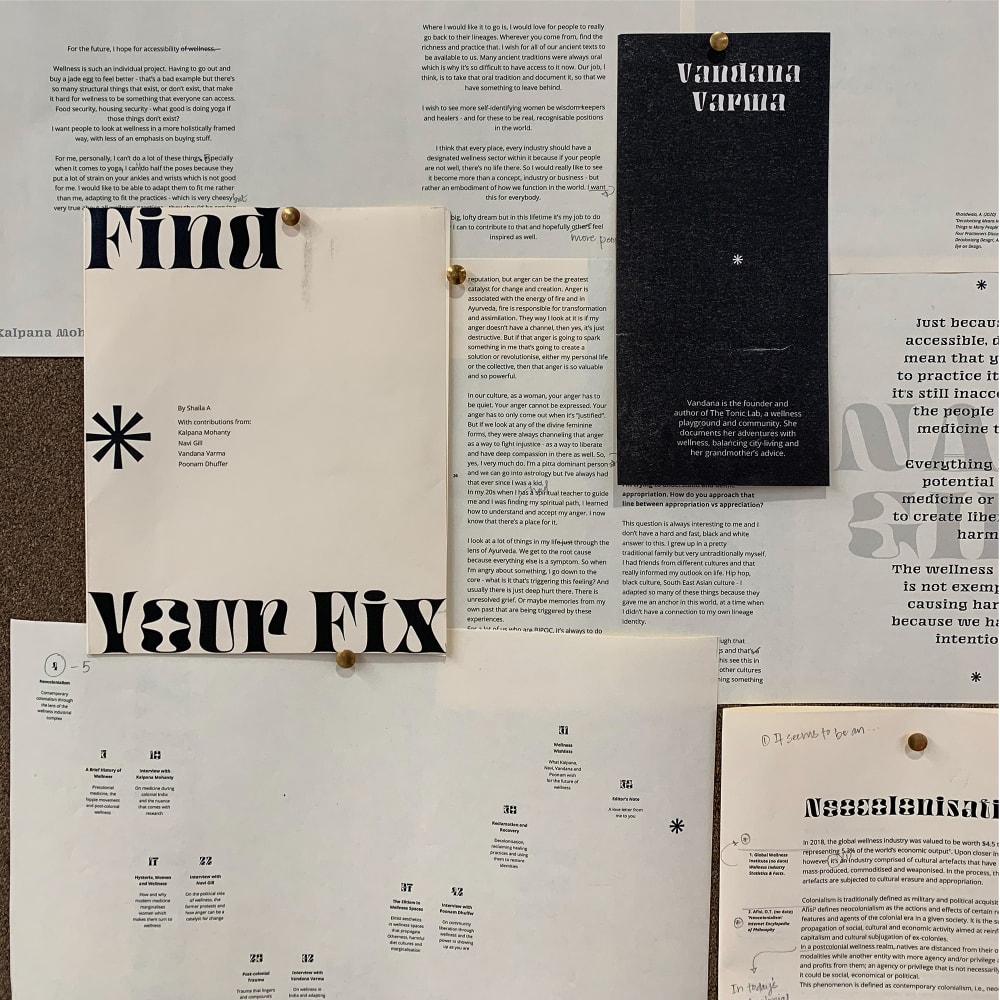
As the curator, I wanted to weave an evolving story that is multifaceted and diverse, so I approached people and organisations who were practicing wellness through various lenses - historical, political, community-led, nourishment - and interviewed them. The result was highly personal and authentic.
When I attended UAL’s talk on Intersectionality and Planetary Health, I was deeply saddened to know the effects of colonialism and racism on climate change. That prompted me to make my project as decolonised and sustainable as possible.
Over this course, I have also developed a deep appreciation for analogue methodologies like ceramics and riso printing. I combined both these notions and used the riso machine to print the publication, Find Your Fix. It is labour- intensive but much more sustainable and visually organic.
Find Your Fix also uses a mix of mediums created by combining the affordances of print and sound. It has QR codes which, when scanned, redirects the reader to a Soundcloud page and they are able to listen to podcast-style snippets of the interviews.
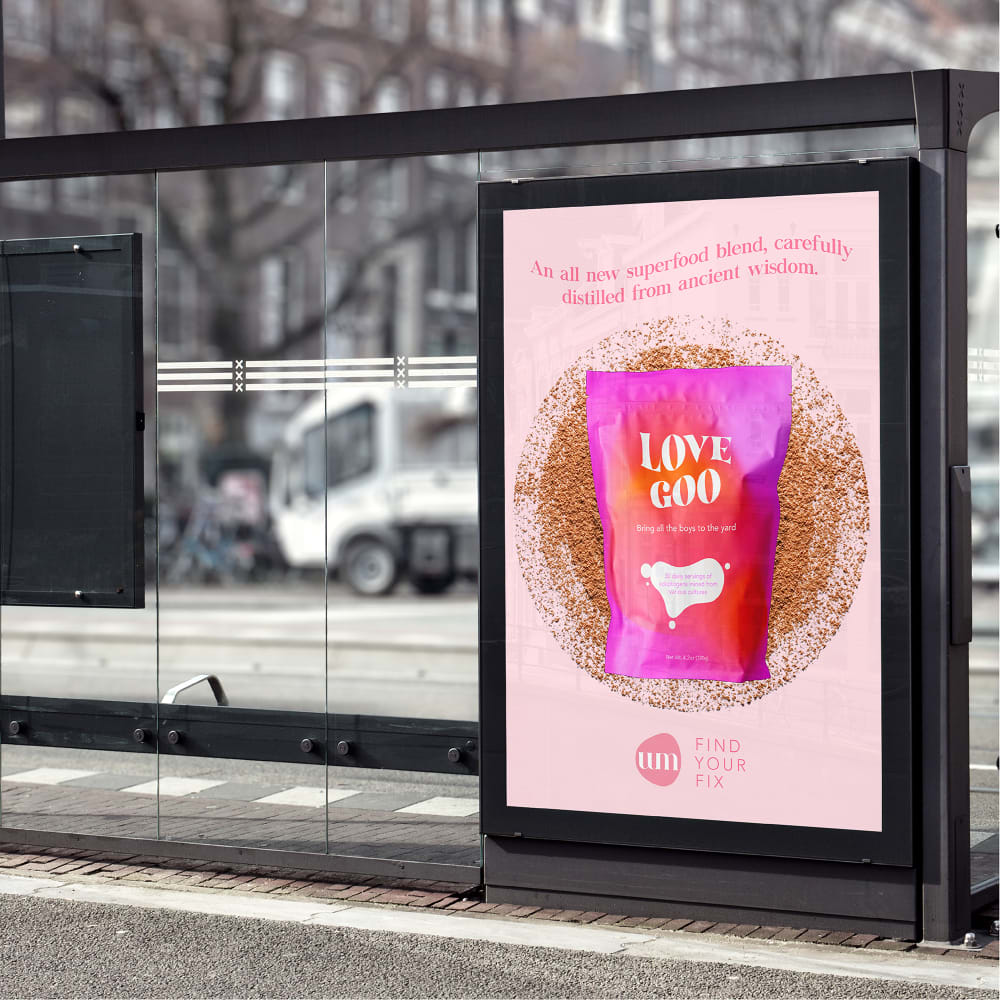
The project explores themes of neocolonialism, gender disparities, and the last effects of imperialism which often gave rise to feelings of anger and sadness. But one of the wellness practitioners I spoke to gave me excellent advice - anger management tips, if you will. She said, "Everything is medicine or poison. If you channel your anger right, it can be a catalyst for change."
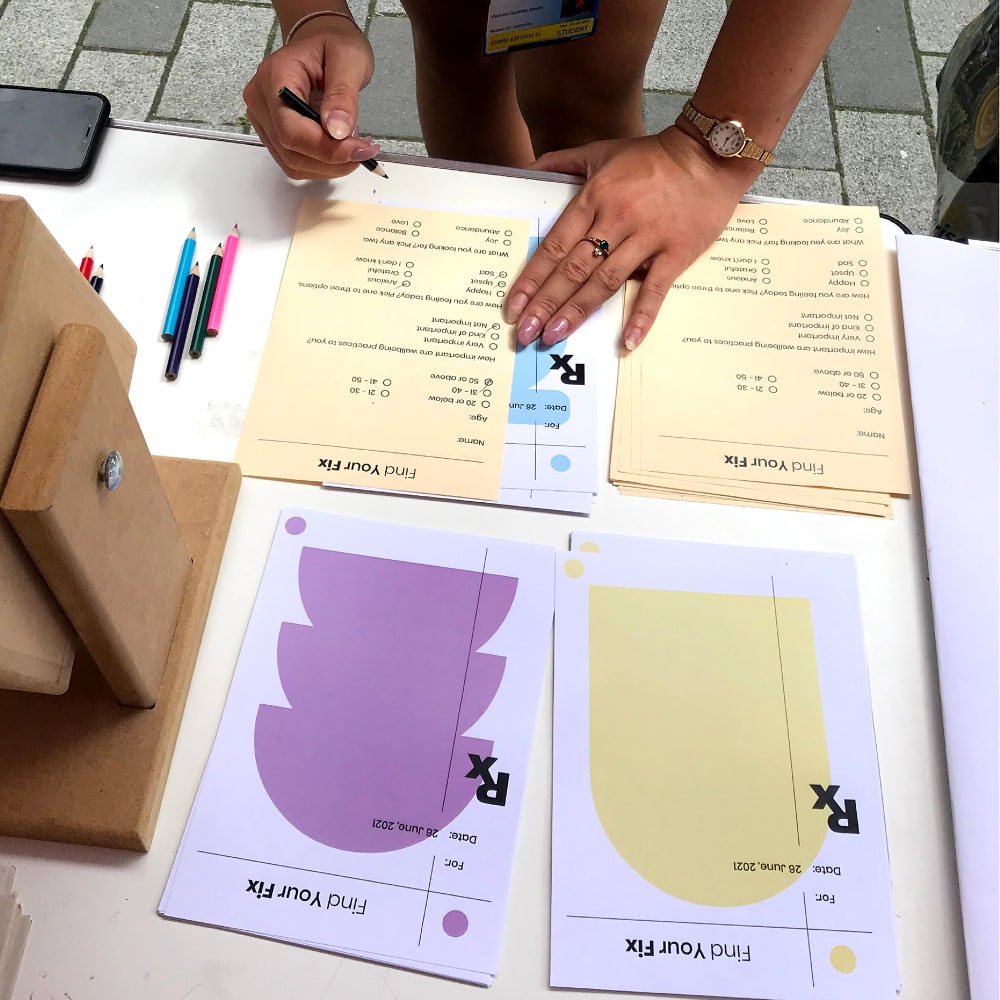
I am looking forward to working as a graphic designer now - hopefully somewhere that’s sunny! I’m also stoked to be the cyberspace co-ordinator at Our Climate Cafe, a digital space that seeks to decentre sustainability from action and centre it around care and community instead. It combines all of the things I am deeply interested in - identity politics, indigenous cultures, mental health and sustainability.